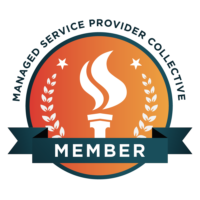In the ever-evolving landscape of international trade and security, organizations involved in the export of defense-related goods and services must navigate complex regulations and requirements. One such set of regulations is the International Traffic in Arms Regulations (ITAR). In this section, we will explore what ITAR is, its regulatory framework, who it applies to, and the consequences of non-compliance.
What Is ITAR
What Is ITAR?
ITAR, or the International Traffic in Arms Regulations, is a set of United States government regulations that controls the export and import of defense-related articles, services, and technical data. These regulations are enforced by the Directorate of Defense Trade Controls (DDTC), a division of the U.S. Department of State. The primary purpose of ITAR is to protect U.S. national security interests and prevent the unauthorized transfer of defense technologies and information to foreign entities.
ITAR Regulations
ITAR regulations provide a comprehensive framework for managing the export and import of defense articles, services, and technical data. Some key aspects of ITAR regulations include:
- Registration: Companies involved in manufacturing, exporting, or brokering defense articles or services are required to register with the DDTC and obtain a unique registration code.
- Licensing: Exporters must obtain proper licenses or authorizations from the DDTC before exporting defense articles or technical data covered by the United States Munitions List (USML).
- Compliance Programs: Organizations subject to ITAR regulations are expected to implement robust compliance programs to ensure adherence to the regulations and prevent unauthorized exports.
- Recordkeeping: Comprehensive records must be maintained regarding all ITAR-related activities, including transactions, agreements, licenses, and shipments.
- Technical Data Controls: ITAR controls the export of technical data, including blueprints, specifications, manuals, and any other information related to defense articles covered by the USML.
Who Does ITAR Apply To?
ITAR applies to any individual, company, or organization involved in the manufacture, export, or brokering of defense articles or services covered by the USML. This includes:
- S. Companies: Any company incorporated in the United States, including subsidiaries and affiliates, that engages in the export or import of defense-related items.
- Non-U.S. Companies: Foreign entities that handle defense articles or technical data originating from the United States or involve U.S. persons or entities in defense-related transactions.
- S. Persons: Individuals who are U.S. citizens or legal permanent residents, regardless of their location, who engage in activities related to defense articles or services.
What Happens If You Don’t Comply With ITAR?
Non-compliance with ITAR can have serious consequences, both legally and reputationally. Penalties for ITAR violations may include civil fines, criminal prosecution, loss of export privileges, debarment from government contracts, and imprisonment for individuals involved in severe violations. Moreover, non-compliance can lead to damaged business relationships, loss of customer trust, and negative impacts on an organization’s reputation.
Ensuring ITAR Compliance
Achieving ITAR compliance requires a proactive approach to managing export-controlled activities. Here are some key steps to ensure compliance:
- Education and Training: Develop an understanding of ITAR regulations and provide comprehensive training to employees involved in export-controlled activities.
- Classification and Licensing: Properly classify defense articles, technical data, and services to determine if they fall under the USML and obtain necessary licenses or authorizations before export.
- Internal Controls: Establish robust internal controls to monitor and document export activities, including recordkeeping, compliance reviews, and auditing processes.
- Restricted Party Screening: Screen all parties involved in export transactions against relevant government watchlists to ensure compliance with ITAR regulations.
- Continuous Monitoring and Updates: Stay informed about changes in ITAR regulations, regularly review and update compliance procedures, and adapt to evolving requirements.
Consulting With ITAR Experts
Navigating the intricacies of ITAR regulations can be complex and challenging. Engaging the expertise of professionals well-versed in ITAR compliance is crucial to ensure your organization operates within the bounds of the law and protects national security interests. Partnering with knowledgeable consultants like NeoSystems can provide guidance, expertise, and tailored solutions to meet your organization’s specific compliance needs in the export-controlled environment governed by ITAR.
Make the Move
Ready to start down the road to CMMC certification? Contact NeoSystems today to learn more about our
CMMC compliance solution & services!











